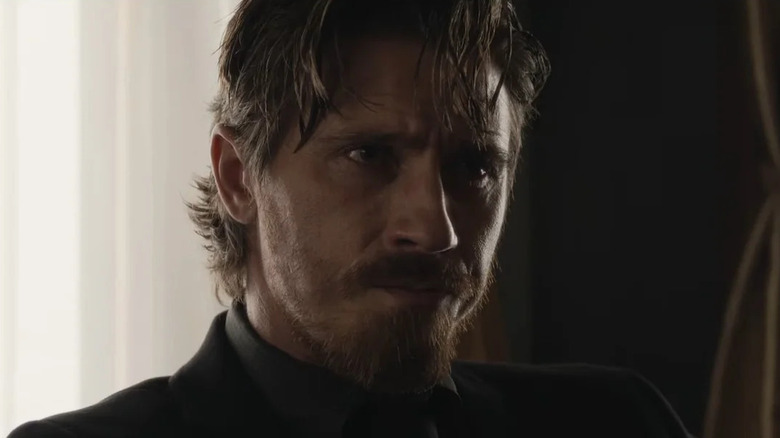Sydney Sweeney Once Starred In A Different Kind Of Stephen King Adaptation
Stephen King's short story "Strawberry Spring" was first published in Ubris Magazine way back in 1968, when the author was only 19. It was made more widely available a decade later when it was included in King's celebrated anthology "Night Shift." The short story was about a fictional New England college, and the mysterious serial killer that stalked through the mists. The killer was nicknamed Springheel Jack, after an 1830s urban legend from England, and he would only appear every time spring started uncharacteristically early. The narrator of "Strawberry Spring" details the murders for the reader, but also speaks wistfully of similar murders from his childhood. At the end of the story, it's revealed that the narrator is actually Springheel Jack, even though he has no memories of committing the murders. Musical sting.
It's not a terribly well-known story in the Stephen King canon, but King's bibliography is so plentiful, that even his lesser tales are scraped up for adaptation to a new medium. We live in a strange world where King's "The Monkey" can see two adaptations within a year of each other.
Hence, even "Strawberry Spring" got the star treatment. In 2021, King's story was adapted into a professional, fully-produced audio drama, put out by iHeart Media and Audio Up Media, and Executive Produced by Jared Gutstadt. The series was stretched out into eight episodes, and presented on a weekly basis. The radio adaptation kept the original story's 1968 time frame, but added a lot more details and notable characters.
Garrett Hedlund played Henry, the central narrator, and supporting characters were played by Sydney Sweeney, Milo Ventimiglia, Herizen F. Guardiola, Ken Marino, Al Madrigal, and Brooke Basinger. One can listen to the entirety of "Strawberry Spring" on the Audio Up website.
The differences between the two Strawberry Springs
Because the audio drama was so much longer, some changes were made. In the 2021 version, the narrator is a reporter investigating the Springheel Jack murders, and he learn about his past through flashbacks. It seems that he witnessed his mother nearly die in a car crash, and it's implied that Henry killed his own mom when he saw that she was suffering. There was a lot more delving into personal lives and backstories. Sweeney plays only a supporting role.
It wasn't widely publicized, but Hedlund was interviewed by Rolling Stone in 2021 about his involvement in the project. He revealed that he and his co-stars (as is typical with a lot of voice roles) never actually met in the same room, recording their dialogue separately. Hedlund, as the narrator, didn't see that as much of an acting challenge, as his character was so internal. In his words:
"It was enjoyable for me, especially because the guy is quite internal and trying to rack his brain constantly. [...] And so you're feeding not only the external dialogue but also the internal thoughts and the thought process and stuff. And, so, it's a fun little roller-coaster within that. Especially when the internal dialogue starts to become very psychological and almost psychotic to an extent, then you have a lot to play with within that."
"Strawberry Spring" wasn't the first notable Stephen King audio adaptation either. In 1984 a radio collection called the ZBS Foundation put out a marvelous 3-D audio rendition of King's "The Mist," a radio production that is, for my money, better than the Frank Darabont movie. The BBC made several audio versions of King's books as well, starting with "Salem's Lot" in 1995, followed by "Pet Sematary" in 1997, "Secret Window" in 2003, and "Misery" in 2004. The medium makes for more vivid scares, and leaves the gore to the imagination. These are all worth a listen.

